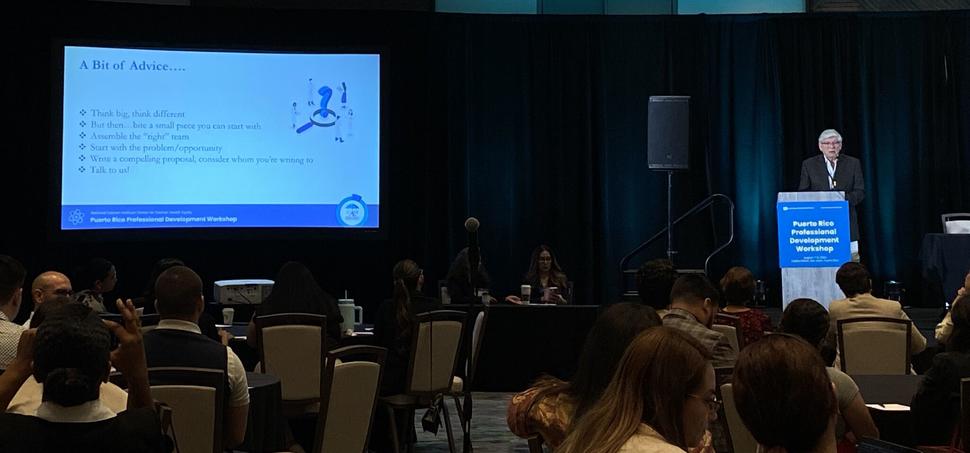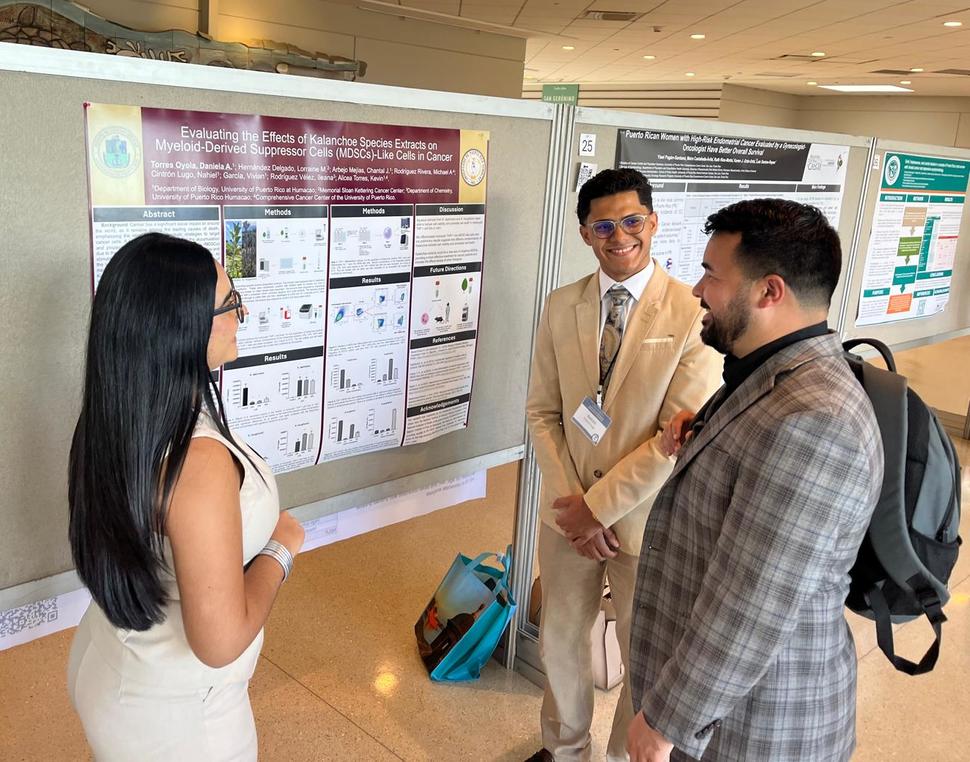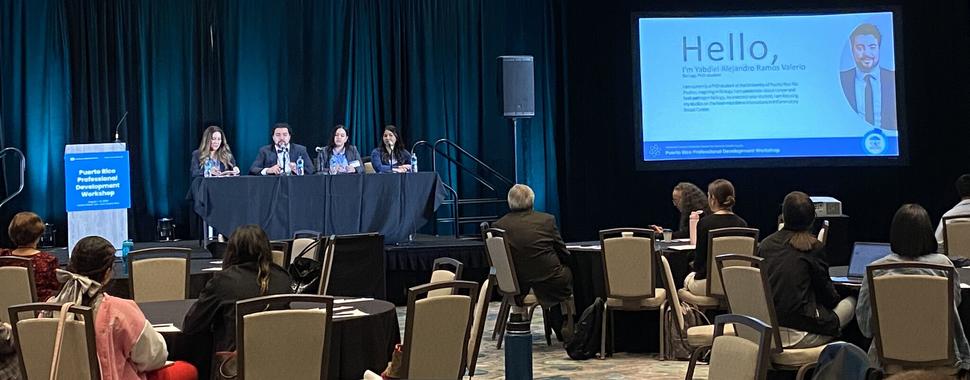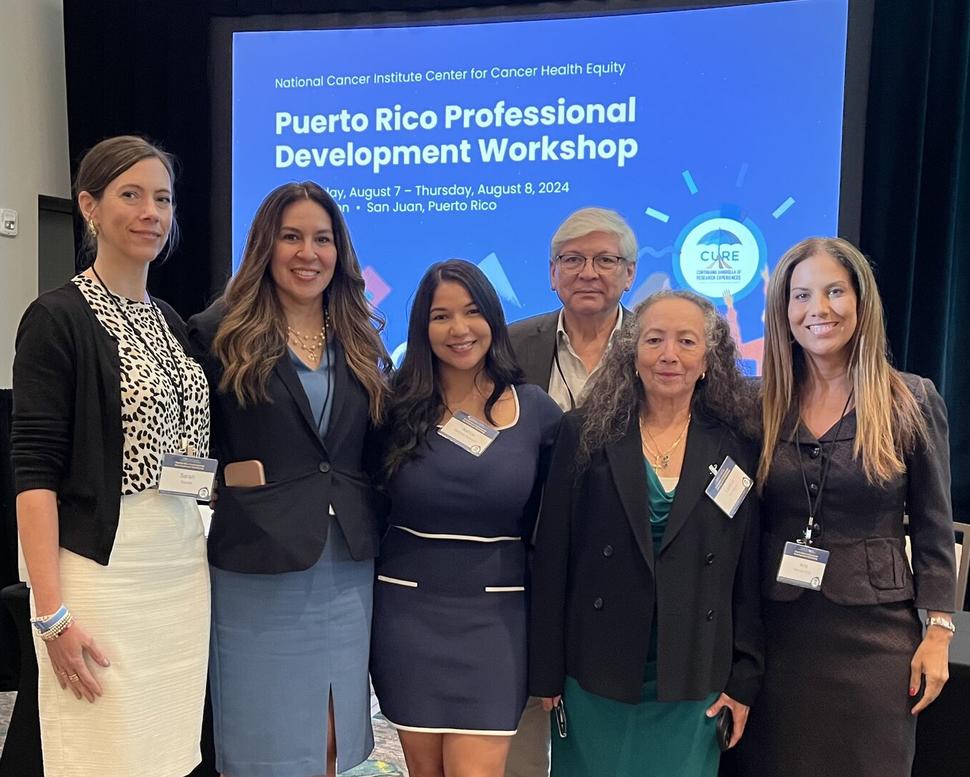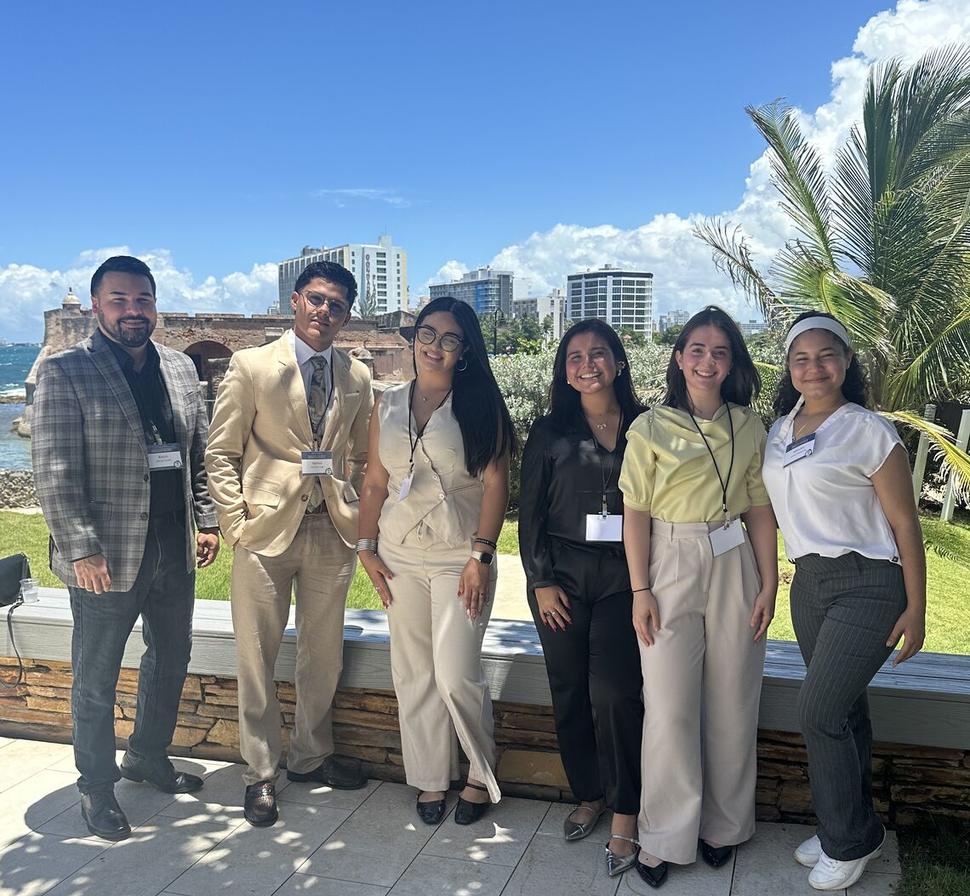Students and Investigators Build Skills at Workshop in Puerto Rico: Forging Cancer Leaders and Researchers
, by CRCHD Staff
Estudiantes e investigadores desarrollan habilidades en el taller de CRCHD en Puerto Rico: Forjando Líderes e Investigadores en Cáncer
In August, the NCI Center to Reduce Cancer Health Disparities (CRCHD) held the Puerto Rico Professional Development Workshop for more than 140 scholars, early stage investigators, and new investigators from universities and other institutions around Puerto Rico. The workshop, which was held in San Juan, aimed to help attendees build the skills they need to develop competitive grant applications, thus providing the foundation for their career development in cancer and cancer health disparities research.
Attendees took part in interactive sessions on practical techniques for strong proposal writing, heard success stories from Puerto Rican researchers, and met with NCI CRCHD staff and Continuing Umbrella of Research Experiences (CURE) and Intramural CURE (iCURE) grantees.
The workshop featured a poster session during which attendees presented more than 45 posters, engaged with their peers, and considered potential research collaborations.
Speakers gave their presentations in English, while panel discussions and Q&A sessions were in Spanish. The Spanish-language conversations allowed attendees to effectively communicate with each other and with presenters and staff in a way that fostered inclusivity and empowered them to freely connect.
“I think that multilingual professional development conversations help the audience feel more comfortable and close to the topics,” said Ana Patricia Ortiz, Ph.D., M.P.H., associate director of the Office of Cancer Research Training and Education Coordination at the University of Puerto Rico Comprehensive Cancer Center. “I also believe that being able to also use their primary language may have helped them feel more at ease with asking questions and networking with other investigators.”
One highlight of the workshop was a session featuring career journey “TED Talks.” In the session, a panel of current and former CURE grantees and iCURE scholars shared their experiences and how the opportunities available from CRCHD contributed to their career success.
CRCHD Community Outreach, Research, and Engagement Branch (CORE) Program Director Sandra San Miguel, Dr.P.H., M.S., said that the discussion “empower[ed] the next generation of cancer research leaders, equipping them not just with resources about funding opportunities, but with the vision and resilience needed to transform challenges into breakthroughs.”
Los paneles de las trayectorias profesionales empoderando a la próxima generación de líderes en investigación del cáncer, equipándolos no solo con recursos sobre oportunidades de financiamiento, sino también con la visión y la resiliencia necesaria para transformar los desafíos en avances.
During the session, Dr. Ortiz spoke about the importance of resilience for researchers. She noted that although she was very successful with R21, U54, and R25 grant mechanisms, it took 19 years for her to receive her first R01. “I learned through experience and hard work,” she said, “and never stopped believing in our capacity and our ideas. That is the message of inspiration I want to give all.”
Panel member Normarie Torres-Blasco, Ph.D., an assistant professor at Ponce Health Sciences University, said that the focus on resilience contributed to the workshop’s theme of forging leaders. She reflected on her journey to receiving a CRCHD CURE K08 award and provided her advice to attendees:
“Be persistent, seek mentorship, and use smaller grants to build a strong track record. Also, find love, beauty, and humor in the process. Stay resilient through the revisions and setbacks—success will come with time.”
Se persistente, busca mentoria, y usa pequeñas propuestas para construir tu carrera de investigación. Tambien, encuentra amor, belleza y humor en el proceso. Continua resiliente en tis revisiones y contratiempos- el triunfo llegará a si tiempo.
CRCHD is committed to conducting activities like this workshop to continue increasing the diversity of the cancer research workforce and enhancing the competitiveness of students, trainees, and investigators from the groups identified by the Notice of NIH’s Interest in Diversity.
